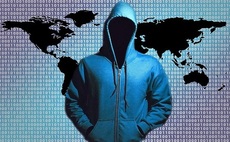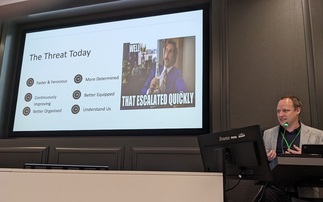Nothing to see here - but we do need a new legal framework governing the security services' activities, claim MPs in long-awaited report
The long-awaited Parliamentary Intelligence and Security Committee report into privacy and security, published this morning, has dismissed suggestions that GCHQ and other parts of the UK's intellig...
To continue reading this article...
Join Computing
- Unlimited access to real-time news, analysis and opinion from the technology industry
- Receive important and breaking news in our daily newsletter
- Be the first to hear about our events and awards programmes
- Join live member only interviews with IT leaders at the ‘IT Lounge’; your chance to ask your burning tech questions and have them answered
- Access to the Computing Delta hub providing market intelligence and research
- Receive our members-only newsletter with exclusive opinion pieces from senior IT Leaders




















